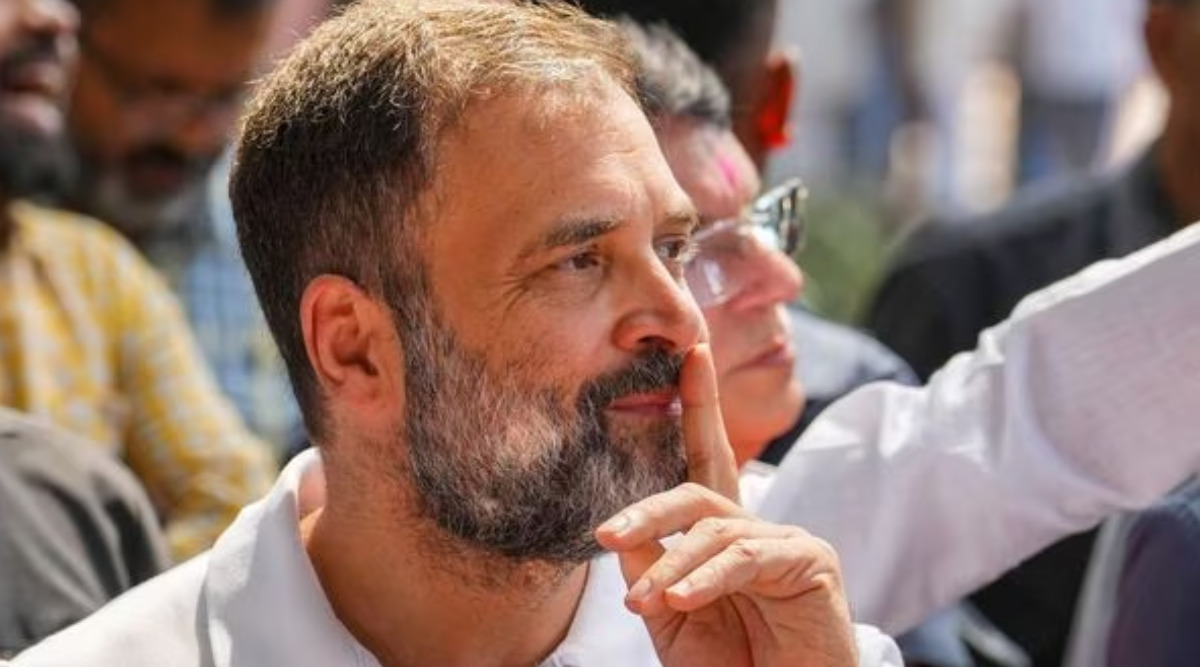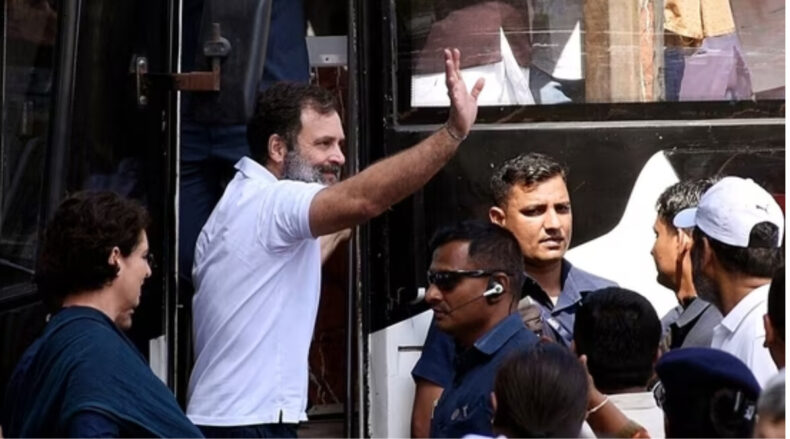On Friday, 4th August, the Supreme Court halted the conviction of Rahul Gandhi, a Congress leader, in a defamation case. BJP leader Purnesh Modi filed the case, alleging that Gandhi had defamed the ‘Modi community.’
Gandhi maintained his innocence and refused to apologize, arguing that there isn’t a single community comprising all individuals with the surname Modi. Previously, a Surat court had found him guilty and sentenced him to the maximum punishment of two years in prison, resulting in his removal from the Lok Sabha.
Despite the Gujarat high court’s refusal to suspend the conviction, Gandhi appealed to the Supreme Court, leading to the stay of his conviction. The high court had accused the Congress leader of “breaching modesty” and committing an offence involving “moral turpitude.”
The Supreme Court’s decision to stay Gandhi’s conviction has put his disqualification on hold as well. The court raised concerns about the sentence given to Gandhi by the lower court. A panel of Justices B.R. Gavai, P.S. Narasimha, and P.V. Sanjay Kumar stated that the trial court failed to provide specific reasons for imposing the maximum penalty for the offence.
The court pointed out that the Magistrate, despite having the option to choose between imprisonment, fine, or both as per the penal code, insisted on giving the Congress leader the harshest punishment available.
The Gujarat High Court, in a lengthy 120-page judgment, extensively discussed various aspects of the case but overlooked the crucial issue of not providing any reasons for imposing the maximum penalty on Mr Gandhi.
The Supreme Court mentioned that Mr Gandhi was disqualified as an MP from the Parliament for a total of eight years under Section 8(3) of the Representation of People Act solely due to the two-year sentence.
Justice Gavai emphasized that if the sentence had been one day less, the provisions of the Act would not have been applicable. The judge should have given reasons for imposing the maximum sentence, especially when the offence is non-cognizable, bailable, and compoundable.
The court said that disqualification doesn’t just impact Gandhi but also affects the voters in his constituency, urging him to exercise greater caution in the future. However, the Supreme Court acknowledged that Gandhi’s remarks in Kolar before the 2019 elections, which led to the case being filed against him, were “inappropriate.”
In his statement, Gandhi questioned the prevalence of the name Modi among individuals involved in controversies, such as Nirav Modi, Lalit Modi, and Narendra Modi, and expressed concerns about more individuals with the same name emerging.
Rahul Gandhi’s attorneys say Gujarat HC’s ruling was unprecedented
During the hearing, Senior advocate A.M. Singhvi (Rahul Gandhi’s counsel) pointed out that he had not come across any other defamation case where the accused received a maximum two-year sentence. He argued that the Gujarat High Court had no valid reason to reject Mr Gandhi’s plea for a stay on the conviction.

Mr Singhvi emphasized that the case did not involve serious crimes like rape, kidnapping, or murder, which would imply moral turpitude. Instead, Mr Gandhi stood convicted of defaming an unspecified group.
Mr Gandhi had already missed two Parliament sessions, and Singhvi presented a list of cases filed against him, all by BJP “karyakartas,” to illustrate the political nature of the complaints. He also refuted the claims that Mr Gandhi had a history of criminal activities.
On the other hand, senior advocate Mahesh Jethmalani, representing the defamation complainant and Gujarat BJP MLA Purnesh Modi, argued that there were official witnesses, tapes, and recordings of Mr Gandhi’s comments.
He asserted that the electronic evidence clearly demonstrated an intent to defame an entire community with the ‘Modi’ surname due to his animosity towards Prime Minister Narendra Modi.
When asked in court, Mr Gandhi claimed that he did not remember his remark. In response, Justice Gavai remarked that politicians make numerous speeches daily, and it’s not surprising for them to forget some of them.













